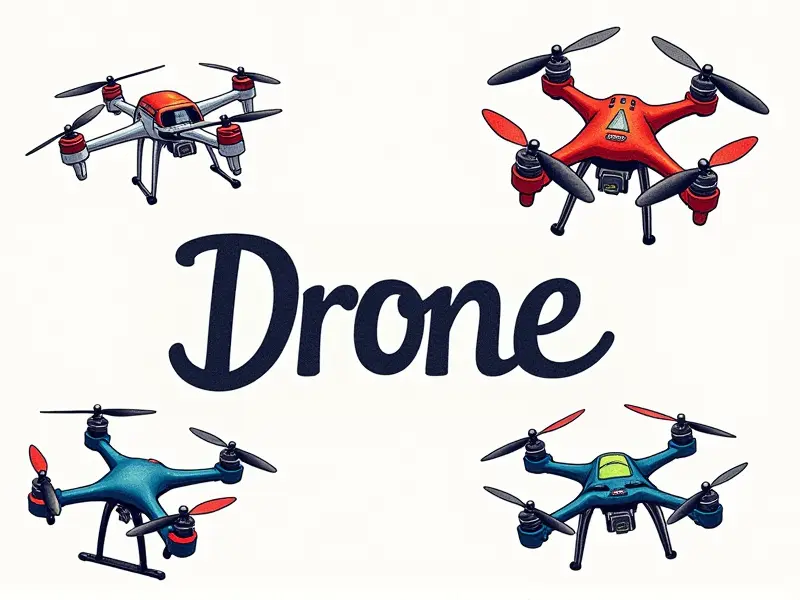Does GPS affect battery life?

Does GPS Drain RC Drone Battery Life?
The use of Global Positioning System (GPS) technology in remote-controlled (RC) drones has become increasingly popular due to its ability to enhance flight stability, navigation accuracy, and autonomous operations. However, one common concern among drone enthusiasts is whether the activation of GPS affects battery life negatively.
Impact of GPS on Quadcopter Battery Usage
The impact of GPS on quadcopters' battery usage can vary depending on several factors such as the type of drone, its hardware specifications, and how frequently the GPS module is utilized. Generally, GPS modules consume a certain amount of power to maintain constant communication with satellites, which can lead to increased energy consumption.
How Much Power Does GPS Use in Drones?
The exact amount of power consumed by GPS varies among different drones and their specific hardware configurations. Typically, GPS modules draw around 100-250 milliamps (mA) when active, which can significantly impact battery life over time. This power consumption is particularly noticeable during long-duration flights or in scenarios where the drone relies heavily on GPS for navigation.
Is GPS Sucking Your Drone's Battery Dry?
The question of whether GPS is draining your drone’s battery depends largely on how it is used and the specific requirements of the flight mission. For instance, during FPV racing or other high-speed maneuvers where real-time positioning data isn't critical, disabling GPS can help extend flight time.
Effects of GPS on FPV Racing Drone Batteries
In the context of first-person view (FPV) racing drones, the impact of GPS on battery life is often less significant compared to other factors such as aerodynamics and propeller efficiency. However, for longer endurance races or missions requiring precise navigation, maintaining GPS can be crucial despite its power draw.
Does Activating GPS Reduce RC Helicopter Flight?
The activation of GPS in remote-controlled (RC) helicopters does indeed reduce flight time due to the additional energy required by the GPS module. This reduction is more pronounced when flying over longer distances or engaging in complex maneuvers that rely heavily on GPS for guidance and stability.
The Energy Cost of Running GPS on RC Planes
Similar to drones, remote-controlled planes also face a trade-off between utilizing GPS for enhanced navigation capabilities and the resulting decrease in flight duration. The energy cost associated with running GPS can be substantial, especially during extended missions or when flying over challenging terrain.
Can You Save Battery by Turning Off GPS?
Disabling GPS is one of the most effective ways to conserve battery power on RC drones and planes. By turning off GPS, you eliminate a significant energy drain from your flight system, potentially extending flight time by several minutes or even longer depending on the mission requirements.
GPS vs. No-GPS: Battery Life Comparison
A direct comparison between using GPS and not using it reveals that disabling GPS can extend battery life significantly. For example, a drone equipped with GPS might achieve 15-20 minutes of flight time compared to 25-30 minutes when GPS is turned off.
Maximizing Flight Time Without GPS Dependence
- Optimize Propellers: Use efficient propeller designs that reduce drag and improve overall performance.
- Battery Management: Utilize high-capacity batteries with better energy density to support longer flights.
- Aerodynamic Design: Enhance the aerodynamics of your drone or plane to minimize air resistance.
The Hidden Cost of Using GPS: Battery Drain
While GPS offers numerous advantages in terms of navigation and stability, it comes with a hidden cost – increased battery drain. Understanding this trade-off is crucial for optimizing flight performance based on mission requirements.
Conclusion
In conclusion, the use of GPS does impact RC drone and plane battery life by consuming additional power. However, the extent of this impact varies depending on the specific application and operational needs. For missions that require precise navigation or stability, the benefits of using GPS often outweigh the drawbacks. Conversely, for scenarios where real-time positioning is less critical, disabling GPS can significantly extend flight time.

